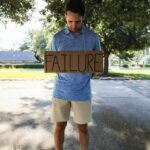Let the journey of self-discovery enrich your life...
“There are two tragedies in life. One is not to get your heart’s desire. The other is to get it.” ~ George Bernard Shaw
Ours can be called the era of self-fulfillment. Knowing what we want and staking a claim to the object(s) of our desires is the mantra of our times. “Going for what you want” has become synonymous with happiness for many people.
But what does it really mean to need or want something? 
We seem insatiable in our appetites for love, information, achievements, and/or material possessions (possessions we justify as being integral to our happiness). And yet, when an apparent need/want is met, many of us find that the initial satisfaction gives way to further hunger. We are plagued by our wants and desires; it appears that no ultimate form of satisfaction exists.
The latest {object of our wanting} comes with the promise to make our lives more convenient, efficient, exciting, satisfying, and the like. Once possessed, however, it’s just a matter of time before our newest possession feels obsolete. The knowledge that a newer or more advanced version is waiting for us psychologically subverts our relationship to what we have; the object obtained rarely compares to the object desired. The marketers of consumerism are highly skilled in the psychology of what they do; they use the knowledge that our desires can never be completely satisfied by keeping us in a constant state of wanting. They seduce by creating the anticipation of fulfillment.
What does this all mean for you and your emotional wellbeing?
To want and desire is to be human. Some might argue that desire is the fuel of life that prevents us from falling victim to mind-numbing inertia. But if our appetites keep us on a psychological treadmill to nowhere, and at times, steer us in directions that might not be in our best interests, there clearly is a downside to mindlessly seeking gratification.
Long ago in the Second Noble Truth, the Buddha pointed out that craving is central to our emotional suffering. When we crave something or someone, emotional pain is inevitable because our cravings can never be adequately satiated. From this position, emotional pain isn’t the result of misfortune but rather, results from the centrality we give to our needs.
Where do your cravings direct you?
The impetus of craving directs your attention away from your inner world to the external, toward finding the “right” partner, or getting your current partner to act in certain ways, or achieving some extrinsic personal or professional milestone, or possessing some “must have” purchase.
It’s easy to become unmoored from ourselves. We’re quick to reach for the nearest distraction, often unaware that we are abandoning ourselves in the process. The prioritization of the external over the internal has led to a self-estrangement that feeds emotional emptiness and chronic boredom. We’ve become addicted to pursuit and anticipation. The current moment has been reduced to a placeholder for whatever is next.
What is your relationship to your wants and needs?
The obvious problem is that we, at best, only form a superficial relationship with our psychological needs. To get to deeply know something, we must be open to and spend time with it. This can be a person, an area of study, or ourselves. This getting-to-know process is inherently frustrating. It must involve the tolerance of not knowing. It must involve becoming roommates with ambiguity and, at times, ambivalence. It must involve staying with uncomfortable emotions.
But something meaningful can arise when we don’t short-circuit our discomfort.
Too frequently, our knee-jerk reaction to what we think we want only removes us from the very place where our needs and desires rest. We are confusing true need with the increasingly automated ways we’ve learned to deal with discomfort.
We experience unease, and this experience is rapidly transformed into the illusion of a want/need:
“I would really enjoy something sweet to eat right now”; “I need another cigarette”; or in some automated way we find ourselves bingeing on Netflix or reaching for another drink or mindlessly and aimlessly searching online for something to capture our attention.
If we were able to mindfully observe this process over a period of time, it would become obvious that the last thing we want is to spend time feeling our feelings.
What do you think you really need?
A better way to ask this question is, What do you think you really need in this moment?
The response to this question can be as simple as, “I’m tired, so I need to rest”; “I just need to be held right now”; or “I can use a little alone time.” But don’t be fooled, this isn’t a simple question (though we are often quick to respond without the level of self-reflectiveness this question demands).
One thing seems obvious: we rarely reply with, “I’m going to need some time to think about that, because I’m not sure what I’m needing or feeling right now.” When we remove the assumption that we should know the answer to this question or that the real answer is always what’s immediately and obviously available, then something important is set into motion:
Acknowledged uncertainty.
Acknowledging that we might not know what we are needing opens the door to the possibility of a new relationship with ourselves. As Shunryu Suzuki states, “In the beginner’s mind there are many possibilities, but in the expert’s mind there are few.” When we approach ourselves without preconceptions, a new world of inner-relating is possible.
When we become experts about what we think we need, we unwittingly shut off opportunities of self-discovery.
When you meet someone for the first time and you are interested in getting to know this person on a deeper level, you listen without judgement or preconception. Close relationships (whether with ourselves or others) are predicated on an openness to what is unfolding — even when we might not like or understand what this discovery brings.
~~~
Decisiveness is highly valued in western culture. Uncertainty can be seen as a sign of weakness, or even ineptness. This cultural backdrop is antithetical to patience. It pressures us into a pseudo-decisiveness that leaves little room for tolerating delay. The frustration that is an inevitable part of human existence is eradicated by action (and sometimes, by acting out).
Welcoming frustration is central to meaningful self-exploration. To step off the psychological treadmill, we must become mindful of the common pattern of unfulfilling consumption that perpetuates the very emptiness it promises to fulfill.
So the next time you find yourself face-to-face with a craving, or mindlessly doing something you’d truly rather not be doing, ask yourself the following:
Do I really want or need another X or Y, or is something else going on with me right now?
Is it possible that what feels like a powerful want or need is only part of the picture?
How can I be with this discomfort in an effort to discover whether there is more to what I’m experiencing?









